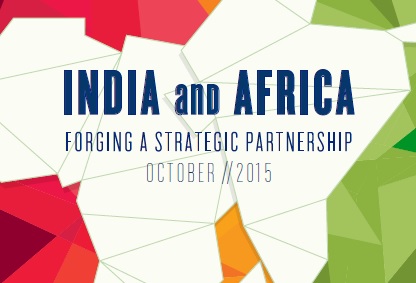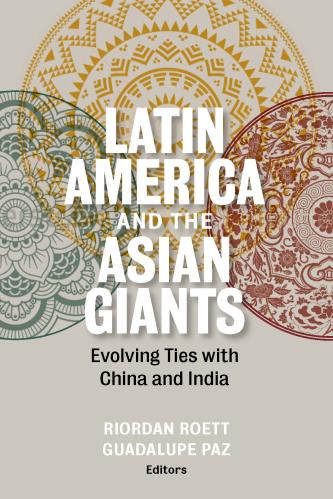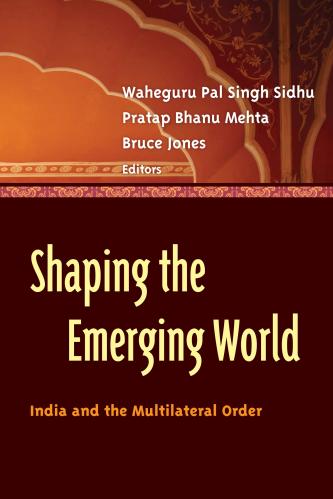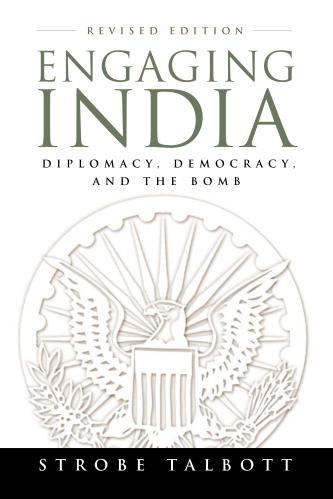Content from the Brookings Institution India Center is now archived. After seven years of an impactful partnership, as of September 11, 2020, Brookings India is now the Centre for Social and Economic Progress, an independent public policy institution based in India.
A version of this article came out in Economic Times on Monday, 14 March 2016.
The India-Africa relationship goes back to thousands of years over which Indian merchants and Africa have traded. In the more contemporary past, India and African countries collaborated closely in the Non-Aligned Movement during the Cold War, and in the struggle against Apartheid in South Africa. But the intricateness of this relationship are yet to be reflected fully in the contemporary economic sphere, and China’s rising economic engagement in Africa is today the dominant reference point. China’s trade with Africa hit $210 billion in 2013, with 2,500 Chinese companies operating in the continent.
India-Africa trade is catching up. India is now the largest trading partner of Nigeria while India is now the largest importer of Nigerian crude oil. But Africa has far more in common with India. An increased strategic economic engagement between the two partners has the potential to be much more genuinely beneficial to both parties than the increasing criticisms of a certain lopsidedness in China’s relations with the continent. The 2015 India-Africa Forum Summit repositioned India-Africa economic relations along some deeper contextual com-monalities than merely transactional activity.
This approach is enabling African countries, gradually emerging in the global economic consciousness, to achieve transformational outcomes beyond simply being a stage for global economic competition between rising powers, such as India and China.
The common challenge that confronts India and Africa is their struggle against poverty. In India, these tensions are represented not only in the economic philosophies of the previous and present national governments but is also evident in the criticism of the late Indian management guru C.K. Prahalad, who highlighted “the fortune at the bottom of the pyramid“, by Raghuram Rajan, the Reserve Bank of India Governor who has said that microlenders should not seek to make a fortune off the poor.
Put differently, this argument is about inclusive business. With Africa gradually emerging as a continent of possibilities and opportunity in the global economy, and with India rising as a global power in the 21st century, India and Africa must go beyond pomp and pageantry to set a concrete set of objectives with time frames for their achievement.Given the shared history of trade and immigration between the two, and several similarities of circumstance and challenges, this should not be too difficult. The need for such specific outcomes is even stronger because Africa is the ‘last frontier’ of the global economy with which it appears every other region of the world seeks a preferential relationship African countries, for their part, need to find common ground on the mutual benefits they can share with India more broadly as a continent, and more specifically between each of them as different countries, with India.
This is the foundation on which India-Africa relations must now proceed. The world has changed markedly from the days of the Cold War, the Non-Aligned Movement, and the struggle against Apartheid. These were the predominant anchors of the India-Africa relations of that era. Today, the economic ambitions of India and Africa, with both parts of the world experiencing marked economic growth but still contending with the challenge of widespread poverty among their populations, create an imperative for win-win partnership.
African countries should no longer allow themselves to be pawns in a chessboard of great or rising power rivalry between India, China, the United States and other dominant global economic actors.
With India and virtually all African countries having discarded state-dominated “command economies“ for the free market to varying degrees, the two sides will benefit much from a mutual review and sharing of experience from the trade-offs between different kinds of capitalist frameworks for economic growth and development.
The path to real economic transformation in Africa, which is what the continent’s leaders seek, does not lie in the export of its raw materials and imports of finished, value-added products. The path to transformation is to develop Africa’s human capital and make manufacturing the basis of its trade with others. India has significant capacity and experience in these areas, including the manufacture of automobiles.
The India-Africa relationship should be anchored on investments by Indian firms in African countries and access to Indian markets for African multinationals, of which several exist in areas such as telecommunications, cement manufacturing, banking, and others. Developing investments in social infrastructure such as education and healthcare through online education that transfers technical skills, or well-equipped hospitals in African countries to reverse the flow of “medical tourism“ would be excellent areas for expanded collaborations.
Africa and India have come a long way, and have a long path into a future in which they are both emerging and rising players. The better angels, however, are in the details of how they can expand their relationship for mutual benefit.
Kingsley Chiedu Moghalu is the Professor of Practice in International Business and Public Policy at The Fletcher School of Law and Diplomacy at Tufts University.








Commentary
Op-edPath to real economic engagement with Africa lies in its human capital
Economic Times
March 14, 2016